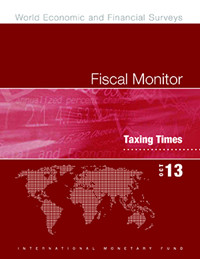Das, S., (2013), “The Return of Europe’s Debt Crisis”, EconoMonitor, 16 Οκτωβρίου. Since mid-2012, the European financial crisis has been in remission, with the symptoms of the underlying disease temporarily suppressed. As treatment is discontinued and drugs lose efficacy, there is a high probability of a relapse. Taking the Waters… A combination of austerity programs, debt write-downs, the European Central Bank’s (“ECB”) commitment to “do whatever it takes” to preserve …Read More
Disentagling the Bond-CDS Nexus: A stress test model of the CDS market
Vuillemey, G. and Peltonen, T., (2013), “Disentagling the Bond-CDS Nexus: A stress test model of the CDS market”, European Central Bank, Working Paper No.1599, Οκτώβριος. This paper presents a stress test model for the CDS market, with a focus on the interplay between banks’ bond and CDS holdings. The model enables the analysis of credit risk transfer mechanisms, includes features of market and liquidity risk, and allows for contagious propagation …Read More
A ‘Poldermodel’ For The EU?
Van Waarden, F., (2013), “A ‘Poldermodel’ For The EU?”, Social Europe Journal, 16 Οκτωβρίου. National social policy programs across Europe have their roots in three different traditions of origin. There is the (partially British) liberalist regime, where programs are the outcome of supply and demand on markets; there is the (French) étatist tradition, where programs have been produced and are organized by the state; and there is the (Germanic) corporatist …Read More
Tax policy in (and for) hard times
Kean, M., (2013), “Tax policy in (and for) hard times”, VoxEU, 16 Οκτωβρίου. Tax policy, like everything else, has been through tough times since the onset of the crisis. First, tax policy was to stimulate the economy (Heady 2011). Now it is to help consolidate the fiscal position – always with considerable urgency and all in the midst of public anger and disquiet. What state has all this left our …Read More
Η Ελληνική Οικονομία 3/2013
ΙΟΒΕ, (2013), Η Ελληνική Οικονομία 3/2013, Αθήνα: Ίδρυμα Οικονομικών και Βιομηχανικών Ερευνών. Το ΙΟΒΕ εκδίδει την τρίτη έκθεσή του για το 2013, στο πλαίσιο των περιοδικών επισκοπήσεων της ελληνικής οικονομίας. Πραγματοποιείται σε μια κρίσιμη περίοδο για την Ελλάδα, καθώς βρίσκονται εν εξελίξει οι διαπραγματεύσεις με την τρόικα για τα δημοσιονομικά μέτρα της περιόδου 2014-2016, κατά τη διάρκεια της οποίας αναμένεται να ολοκληρωθεί η δημοσιονομική προσαρμογή της χώρας, καθώς και για …Read More
The Periphery Six
Wright, T., (2013), “The Periphery Six”, Project Syndicate, 14 Οκτωβρίου. Cyprus, Greece, Ireland, Italy, Portugal, and Spain share a problem. With massive debt, no control over monetary policy, and no leeway for fiscal stimulus, they appear headed for a lost decade of high unemployment and low GDP growth. Such a path would drain the political establishment of legitimacy and prevent a real recovery in Europe. With structural reforms having proved …Read More
The IMF and the legacy of the euro crisis
Schadler, S., (2013), “The IMF and the legacy of the euro crisis”, VoxEU, 15 Οκτωβρίου. The IMF loans to Greece, Ireland and Portugal are considered controversial by some analysts. This column argues that these loans – granted without having agreed on convincing paths to manageable debt levels – constituted a substantial departure from IMF principles. The situation is costly for Europe and, having now permanently changed the principles guiding large …Read More
Proposal for a Stabilisation Fund for the EMU
Delbecque, B., (2013), “Proposal for a Stabilisation Fund for the EMU”, Centre for European Policy Studies, Working Paper No.385, 14 Οκτωβρίου. This paper argues that it should be possible to complement Europe’s Economic and Monetary Union with an insurance-type shock absorption mechanism to increase the resilience of member countries to economic shocks and reduce output volatility. Such a mechanism would neither require the establishment of a central authority, nor would …Read More
The 2014 European elections: Why a partisan Commission president would be bad for the EU
Grabbe, H. and Lehne, S., (2013), “The 2014 European elections: Why a partisan Commission president would be bad for the EU”, Centre for European Reform, 14 Οκτώβρίου. The EU urgently needs measures to improve its democratic legitimacy and the decisions taken in its institutions. But the most prominent proposal touted in Brussels as the solution to the democratic deficit could make the problems worse rather than better. The idea is …Read More
Fiscal Monitor 2013: Taxing Times
IMF, (2013), Fiscal Monitor 2013: Taxing Times, Washington D.C.: International Monetary Fund. Persistently high debt ratios in advanced economies and emerging fragilities in the developing world cast clouds on the global fiscal landscape. In advanced economies, with narrowing budget deficits, the average public debt ratio is expected to stabilize in 2013–14—but it will be at a historic peak. At the same time, fiscal vulnerabilities are on the rise in emerging …Read More





